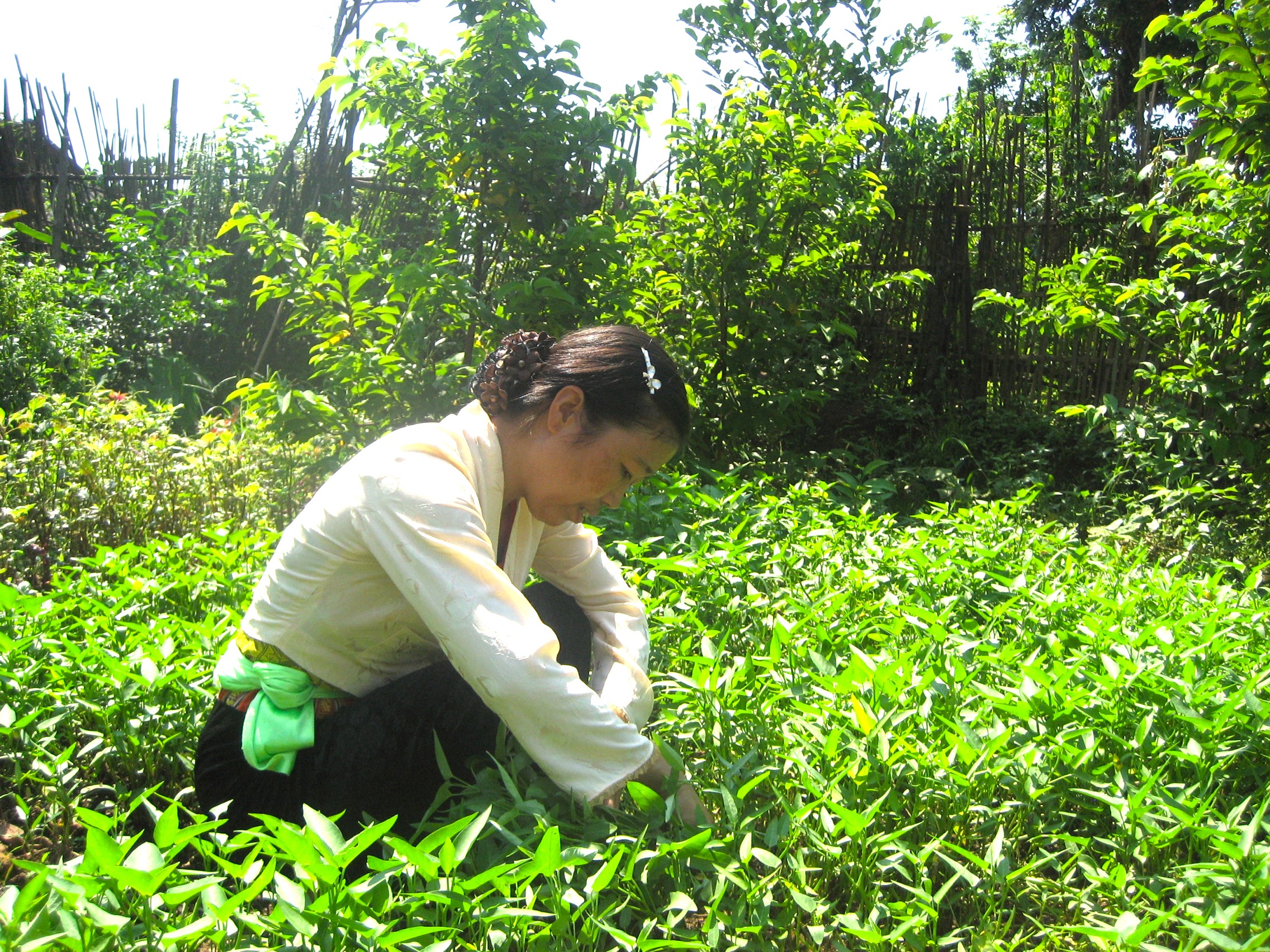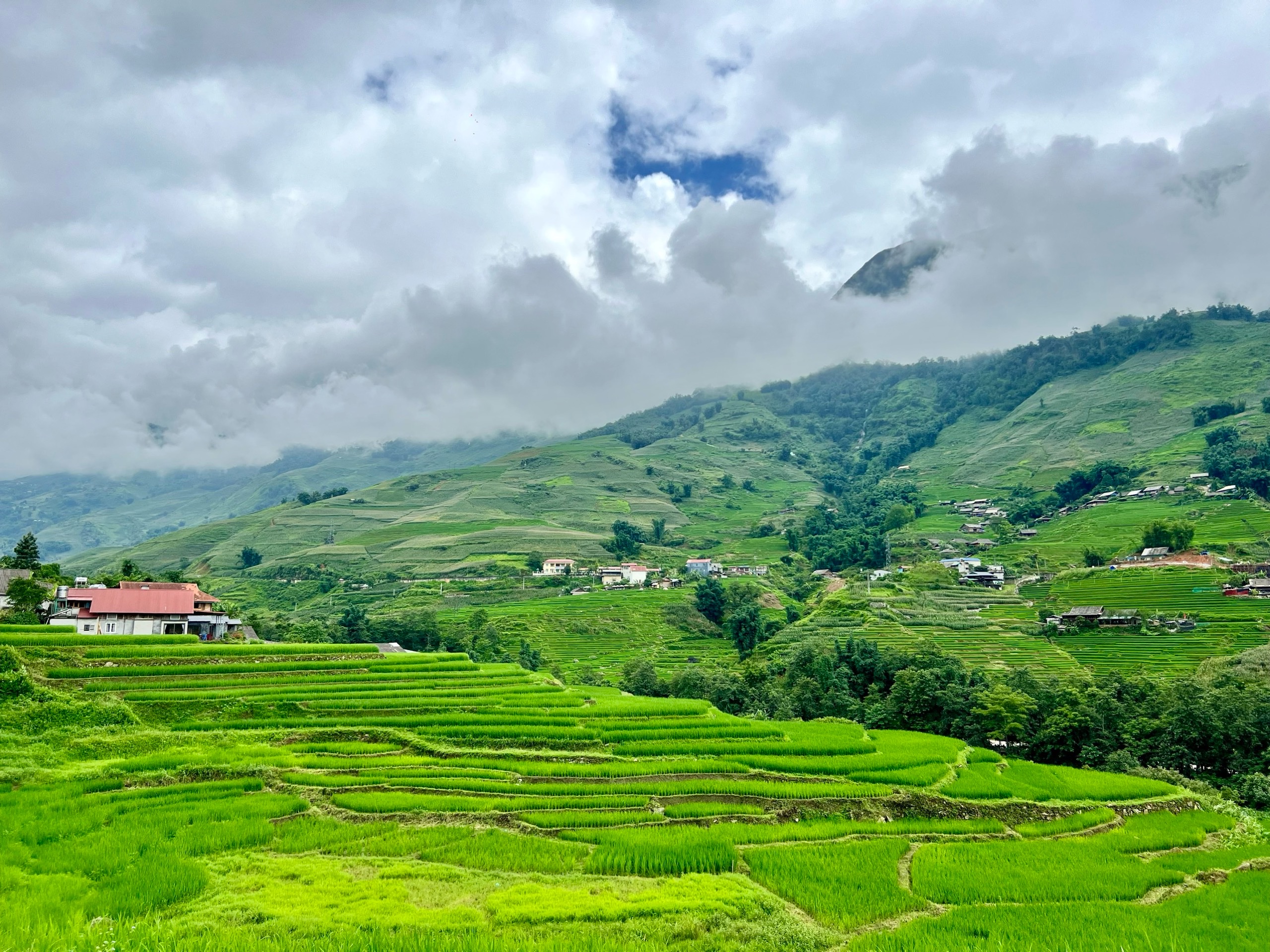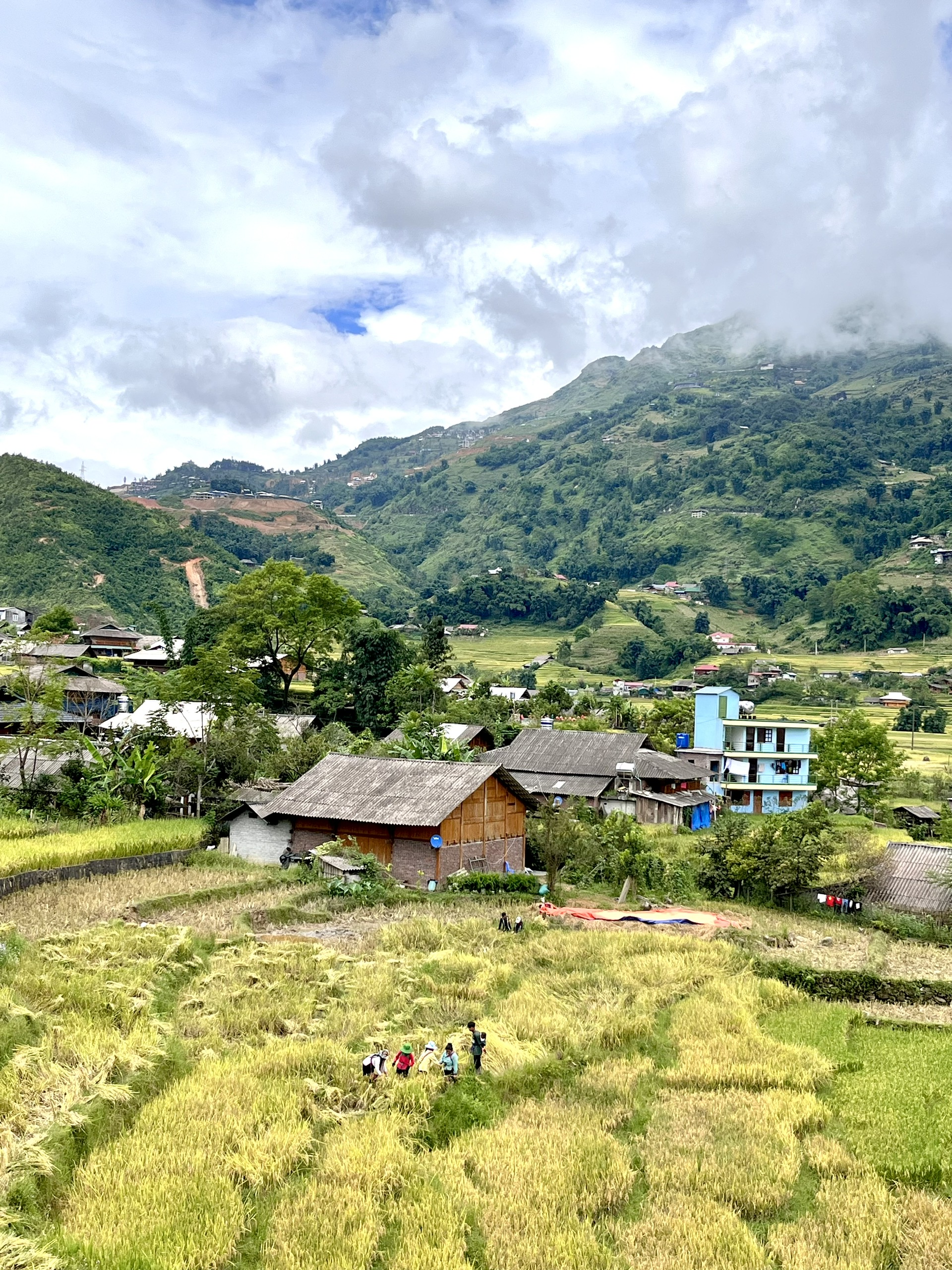Improving livelihoods through sustainable tourism development is an approach aimed at enhancing the quality of life for communities while protecting and preserving natural and cultural resources.
1. Community development, livelihood diversification, and training
In 2006, CECAD helped establish the "Women’s Savings and Credit” group with 519 female members in the communes of Tu Ne and Thanh Hoi, Tan Lac district, Hoa Binh province. The group's main goal was to empower the Muong ethnic women, helping them improve their conditions and combat discrimination (limited work opportunities, restricted mobility, and lack of respect). Within the group, members could share knowledge and support each other, fostering long-term development. With funding from ICCO, CECAD implemented the “Livelihood Improvement and Capacity Building” project, and through the activities of the project, all participating poor households were lifted out of poverty. The local community in Tan Lac district was able to diversify its livelihood activities, generating alternative incomes from tourism and mushroom cultivation. Households were trained on overcoming challenges like drought, pests, and diseases, which helped ensure stable income. The project supported the creation of jobs for the poor, contributing to poverty reduction in the area.
CECAD implemented several projects to empower local communities by providing them with opportunities for financial self-assessment, increasing their interest in development projects. People in Tu Ne and Thanh Hoi communes, Tan Lac district, Hoa Binh province, were trained on proposal writing for ICCO-funded projects and submitted funding requests to the Community Development Board and CECAD. After the project, the community showed interest in accessing capital, technology, and new farming methods, as well as disease prevention measures and other opportunities.
The Community Development Board was established in Tu Ne and Thanh Hoi communes. Under CECAD's supervision, 29 community-based organizations (CBOs) were set up to manage community development programs. These CBOs successfully implemented projects that supported development in their communities and improved the livelihoods of local people. Economic development diversification activities, such as beekeeping, mushroom cultivation, and livestock farming, became the focus of these CBOs.
The Sustainable Agriculture and Muong Ethnic People in the Northwestern Region of Vietnam" project aimed to mitigate the risks of chemical use to human health and the environment through better management and sustainable use of agricultural, industrial, and consumer chemicals. The project encouraged farmers to practice sustainable agriculture and improve the local community's resilience to climate change. With support from VECO Vietnam, CECAD implemented the "Vegetable Value Chain Development in Vietnam - PGS Pilot in Tan Lac District, Hoa Binh" project, which created a link between production and markets while promoting policy support for the Participatory Guarantee System (PGS) in Tan Lac. The project's ultimate goal was to connect organic agricultural organizations with the private sector in major cities such as Hoa Binh and Hanoi. The expected outcome was that PGS quality certification would be recognized by district and provincial authorities. Farmers were encouraged to switch to safe organic farming practices, and consumers were informed about where to purchase these products. The project also helped connect organic farming groups to monitor product quality and increase the volume of organic vegetables on the market. The campaign successfully encouraged 30 households to switch to organic farming and attracted over 50 regular customers for organic products. The project also created jobs for local people, especially women and children, by involving them in organic production. Most importantly, the project helped promote sustainable agriculture and improved the community's resilience to climate change.
With support from ICCO, two waste disposal centers were established, and two waste collection groups were formed in Tu Ne and Thanh Hoi communes. Currently, more than 300 households are paying a monthly fee for waste collection. Waste is collected from the hamlets along Road 12B, businesses, schools, and markets, and is processed at a central location in Tu Ne commune. The project has made a positive change in the appearance of both communes and supported the development and environmental protection in the area.
In June 2019, the “Support for Livelihood Activities to Mitigate Biodiversity Threats and Mobilize Community Participation in Wetland Conservation in Thai Thuy District, Thai Binh Province” project was launched, a collaboration between the Vietnam Biodiversity Conservation Agency (BCA), the Vietnam Environment Administration (VEA), the Ministry of Natural Resources and Environment, and CECAD. The project aimed to design and pilot a sustainable clam farming model in the Thai Thuy Nature Reserve, with the goal of reducing threats to the ecosystem and enhancing sustainable livelihoods for families living in the wetland areas along the coast.
To achieve this goal, local communities, especially the people, need to understand the importance of biodiversity and the value of wetlands, including ecosystem services. The biodiversity threats caused by human economic activities have negatively impacted the lives of local communities who depend on wetland resources.
The development of clam farming in Thai Thuy district has contributed to economic growth. However, the overdevelopment of this activity has disrupted farming regulations and altered the intertidal zone structure. Intensive clam farming has led to a loss of biodiversity and decreased clam yields. The ecological clam farming model, implemented from October 2019 to March 2020 in Thai Do commune, showed significant results after just two months compared to intensive farming. Notably, a sustainable clam farming cooperative was established, with operational rules developed by the members themselves. Cooperative members are now encouraged to participate in value chain linkages for clams. We hope the project will produce positive outcomes, contributing to the conservation of wetlands in the area while maintaining sustainable incomes for clam farmers.
In the framework of the project “Exploring Muong Cultural Identity in Environmental Protection through Education in Tu Ne Commune, Tan Lac District, Hoa Binh Province”, teachers at two secondary schools in Thanh Hoi and Tu Ne communes were encouraged to adopt a new student-centered teaching method. The project conducted training courses for teachers willing to apply this new technique, which combines fostering creativity with teaching traditional Muong culture. These new techniques increased student interest in learning about traditional culture and improved the relationship between teachers and students. In addition to gaining a better understanding of Muong culture, students developed a stronger sense of pride in their nation and ethnic identity. This new approach was accepted by the Ministry of Education and Training and has been applied not only in Vietnam but also in countries in the Asia-Pacific region.
As part of similar projects, CECAD initiated efforts to help the Muong ethnic minority groups in Tu Ne and Thanh Hoi communes preserve their cultural identity and heritage. CECAD also supported the establishment of community-based tourism groups (CBOs) in both communes. These groups, consisting of 44 members, provide services to tourists, including lodging, guiding services, and restaurants. In addition, groups focused on crafting, traditional Muong dance, and singing were also formed. The number of tourists visiting the villages annually is about 100 Vietnamese and 300 international visitors, with potential for growth in the future.
3. Environmental and Social Safeguard Measures
Environmental and social safeguard policies are essential tools aimed at preventing and mitigating unintended consequences on people and the environment during development processes. When identifying and designing a project, safeguard measures help assess the potential environmental and social risks as well as the impacts (both positive and negative) associated with development interventions. During project implementation, these measures assist in identifying actions and processes to effectively manage risks and enhance positive impacts. The application of safeguard policies can also provide a valuable opportunity for stakeholder engagement, improve the quality of project proposals, and strengthen ownership, particularly among local communities, including ethnic minorities.
In 2016, CECAD completed a research project entitled "The Development of Rubber Trees in Northwest Vietnam". This study aimed to investigate the social and environmental costs and benefits of rubber cultivation in the northwest of Vietnam. The research findings contributed to promoting a fair and environmentally sustainable land concession process (ELCs) not only in Vietnam but also in the Lower Mekong Subregion (LMS). Additionally, this research served as one of the key data foundations for the project "Building GIS Maps of Livelihoods and Vulnerabilities of Thai Ethnic Minority Communities in the Rubber Cultivation Project Area in Northwest Vietnam". This project seeks to address land and water resource management issues related to gender by using Geographic Information Systems (GIS) and organizing Training of Trainers (TOT) courses on GIS with a gender component for provincial policymakers. The aim is to implement an inclusive and comprehensive approach to improving decisions on environmental management, disaster risk reduction, and enhancing climate change resilience. If successful, this approach will be applied to other areas in Vietnam to implement a coordinated multi-stakeholder program addressing environmental degradation, climate change, and increasing disaster risks at the local level, ensuring livelihoods and environmental protection for affected communities.
In July 2018, CECAD, in collaboration with the Northwest Cooperation and Development Center (NWD), implemented the project “Enhancing Business Capacity and Building a Model for Improving Access to Economic Information for Ethnic Minority Women in Lac Son District, Hoa Binh Province”. The project aimed to improve market access and information exchange to enhance business efficiency in agricultural products for women in Lac Son. It also supported the Women’s Union in achieving national goals for women’s entrepreneurship in the 2016-2020 period, as well as improving the economic status and empowering Mường ethnic women. Additionally, the project sought to create a model to improve two-way access to economic information for ethnic minority women and amplify their voices by enhancing business skills and the ability to effectively access and use information. This, in turn, enabled women to participate in decision-making processes and the development of local economic and social policies. Through a series of activities, the project achieved results at both institutional levels—implementing policies related to the Law on Information Access and the economic development of ethnic minority women—and at the project level, where a model for improving access to economic information for ethnic minority women was successfully established in Lac Son District, Hoa Binh province.
To further support ethnic minority women in seeking new business and livelihood opportunities, CECAD initiated the project"Enhancing the Role and Position of Thai and Hmong Ethnic Minority Women through Improving Business Skills and Accessing and Using Information Effectively in Moc Chau District, Son La Province". This initiative aimed to improve business opportunities for Thai and Hmong women by helping them enhance their business skills and increase their access to essential information for business success. The ultimate goal was to create a core group of entrepreneurial Thai and Hmong women in Moc Chau who could actively participate in decision-making and designing local socio-economic policies. The project was launched with more than 20 local women enthusiastically participating in discussions with CECAD about initial ideas and challenges for the project’s success. With CECAD’s guidance, the group carried out a series of activities, including the establishment of a Women's Entrepreneurship Club, assessing the training needs of its members, and organizing relevant training sessions. Workshops and dialogues fostered cooperation between local authorities and Thai and Hmong women. This collaboration provided significant benefits to both the women and the local government of Moc Chau, contributing to the goals of enhancing social equity, increasing rural income, reducing poverty, and promoting sustainable development.
5. Management, Accountability, and Transparency
CECAD has promoted local community participation in local socio-economic development decision-making processes and strengthened the capacity of local authorities in transparency, governance, and accountability. CECAD has also carried out activities aimed at raising awareness and enhancing the local population’s capacity to monitor the implementation of laws and rural development policies.
One of the key projects CECAD has implemented is "Enhancing the Capacity of Community-Based Organizations (CBOs) of Ethnic Minority Groups in Tan Lac District, Hoa Binh Province". This project includes training sessions and campaigns to empower Mường and Thái ethnic minority community-based organizations (CBOs), community leaders, cooperatives, and local People’s Councils, increasing their capacity to proactively contribute to local socio-economic development plans and participate in other development projects and related programs.
In 2014, CECAD carried out the project "Community-Based Civil Society Organizations Led by Ethnic Minorities and Grassroots Democracy in Mường Communities in Northwest Vietnam". The project aimed to: (1) Enhance the capacity of community-based organizations (CBOs) to promote local community participation and contribute to the annual Socio-Economic Development Plan (SEDP); (2) Ensure the feasibility of the SEDP by equipping local communities with the ability to implement, monitor, and evaluate SEDP activities;
(3) Ensure that resources are used effectively. By the end of the project, 1,500 individuals had benefited from the initiative. A manual on local community participation in the SEDP was developed. This document includes the process of developing the annual SEDP at the commune level, the SEDP contributions made by the people, and feedback on community participation, effective participation methods, and concrete examples of how the voices of the community are reflected in policies. After receiving feedback from the Commune and District People’s Committees, the manual was adjusted and distributed to local people, CBO members, commune and district officials, as well as staff involved in other ongoing projects in the area. This approach has helped foster transparency and accountability, ensuring that local communities are engaged in the governance process and that their input directly influences policy and development decisions.
CECAD has been awarded certificates of merit for its significant contributions to local capacity building and poverty reduction in Tan Lac District. Specifically, the organization received the District-level Certificate of Merit in 2008 and 2014, as well as a Certificate of Merit from the People’s Committee of Tu Ne Commune in 2012. These recognitions highlight CECAD's impactful role in enhancing local capabilities and supporting poverty alleviation efforts in the region.
© 2024 CECAD
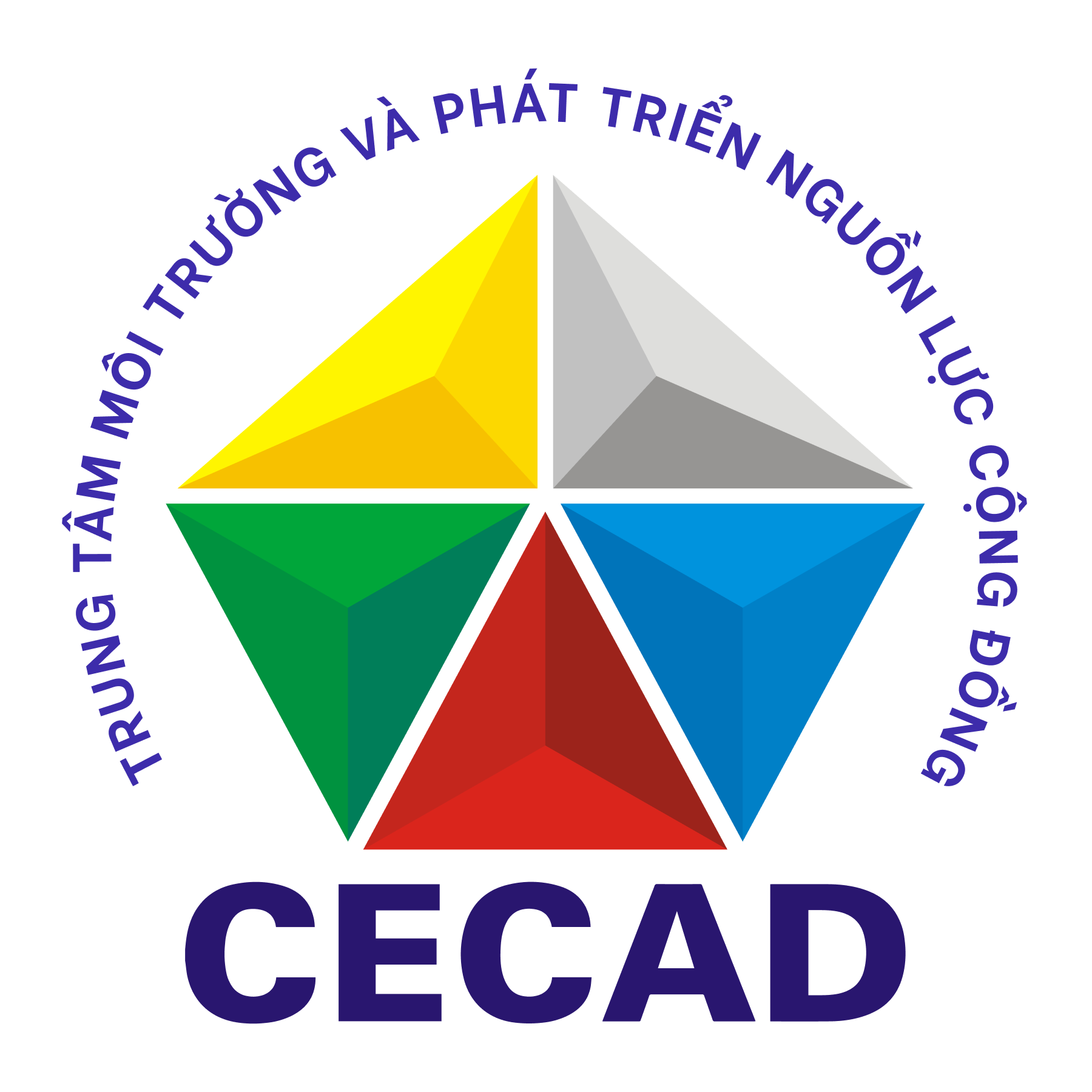
Each project we implement represents a meaningful step toward sustainable development—contributing to nature conservation, biodiversity protection, improved community livelihoods, and enhanced climate resilience.
.png)
